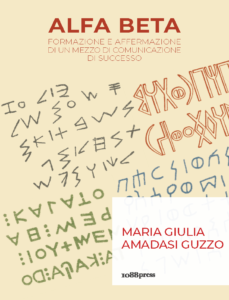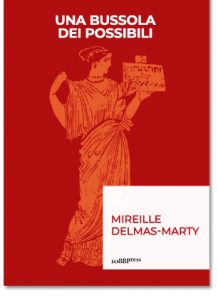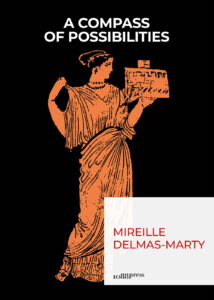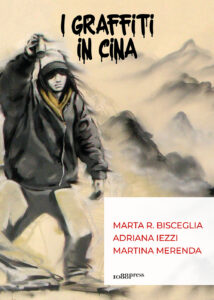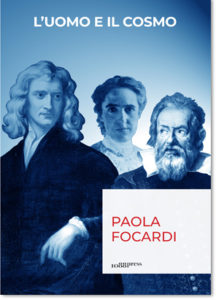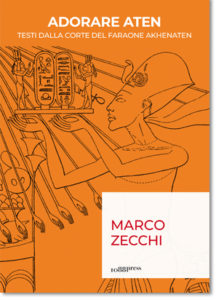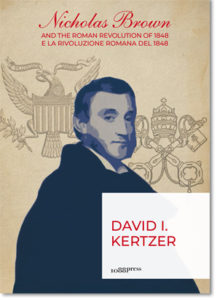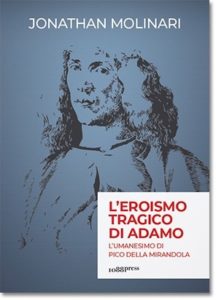
BYTES
Saggi di ambito umanistico e scientifico scritti da autorevoli personalità per riflettere sulla società globale contemporanea, sulla sua identità, sulle sue traiettorie e sfaccettature.
Questo volume ripercorre la storia dell’alfabeto, con un’attenzione specifica alla sua origine; ne descrive le tappe della diffusione nel tempo e nello spazio, dal Levante all’Asia anteriore, fino all’Arabia e all’India, dalla Grecia all’Italia antiche, dall’Età del Bronzo alla modernità, subendo modifiche profonde nella forma dei segni, spesso invece più lievi nella concezione.
In un’acuta riflessione sul diritto e sulla giustizia, Mireille Delmas-Marty ci ricorda che l’umanesimo e la centralità della persona sono più che mai necessari di fronte alle sfide della nostra era: crisi sanitarie e finanziarie, sociali ed ecologiche, disastri umanitari e terrorismo globale, sono tutti accomunati da interdipendenze così forti che nessuno Stato può più rispondervi da solo…
Globalization opens up unprecedented opportunities, but it also creates threats not only to human beings but also the entire ecosystem, provoking a sovereigntist withdrawal in a world that is losing its way through powerful, seemingly irreconcilable, winds of globalization: freedom and security, competition and cooperation, exclusion and integration, innovation and preservation. What is the place, then, for a legal humanism within the global governance system? Mireille Delmas-Marty confronts narrow narratives – disaster-narratives of collapse or programmatic-narratives with the adventure-narrative of Mondiality, a community of destiny united in its plurality.
I graffiti sono un movimento artistico globale in costante sviluppo ed espansione. Giunti in Cina solo a metà degli anni Novanta, rappresentano un fenomeno pressoché sconosciuto ma estremamente vivo e vivificante, in grado di restituire anima e voce agli anonimi quartieri delle megalopoli cinesi. Attraverso la presentazione dell’intensa attività di alcuni tra i writer e le crew più famosi in Cina, questo volume racconta di un’arte in continua evoluzione, ancora totalmente inesplorata, che si colloca a metà tra legalità e illegalità, tra libera arte di strada e arte commerciale, tra sostegno statale e denuncia sociale, prefigurando così una specificità tutta cinese, rivelatrice di quella che è la sfaccettata realtà artistico-culturale della Cina contemporanea.
Fin dai tempi più antichi gli uomini hanno scrutato il cielo e le stelle, cogliendo nella regolarità degli apparenti moti celesti il palesarsi di un ordine superiore, da cui trarre segni che potessero dare un senso al loro presente e indicare il corso delle azioni future. Da sempre l’indagine del cielo determina la percezione che l’uomo ha della propria collocazione nell’assetto del cosmo…
Alla metà del XIV secolo a.C. l’Egitto fu sconvolto dall’ascesa al trono di Amenhotep IV, il quale, nel quinto anno di regno, cambiò il proprio nome in Akhenaten. Si inaugurava una politica religiosa votata esclusivamente al culto del dio sole Aten, che apparve già ai contemporanei in contrasto con la oramai millenaria tradizione della civiltà egiziana…
Unico rappresentante ufficiale del Governo degli Stati Uniti a Roma, durante la Rivoluzione del 1848, Nicholas Brown giocò un ruolo importante nelle vicende di quegli anni. Appellandosi ai valori repubblicani e illuministi, sostenne attivamente la Repubblica Romana appena proclamata, in conflitto diretto con le istruzioni ricevute dal segretario di Stato del suo stesso Governo…
Ritmo della storia, dimensione antropologica, tutela della pluralità sono alcuni dei motivi che separano la riflessione di Giovanni Pico della Mirandola da quella della maggior parte dei suoi autorevoli interlocutori umanisti, una riflessione sempre tesa a mostrare come il mosaico del sapere dell’umanità fosse costruito sulla differenza eppure strutturato secondo un’intima coerenza…


